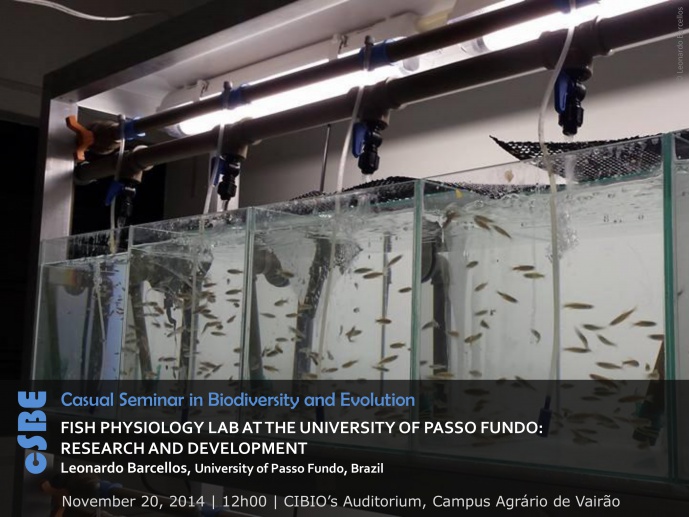FISH PHYSIOLOGY LAB AT THE UNIVERSITY OF PASSO FUNDO: RESEARCH AND DEVELOPMENT

CASUAL SEMINAR IN BIODIVERSITY AND EVOLUTION

The stress response is a complex cascade of adaptive alterations that leads the individuals to cope with disturbances that challenge their homeostasis. This event is coordinated by the hypothalamic–pituitary-interrenal (HPI) axis and the end product of activation of this axis is the glucocorticoid cortisol, which is a regulator of the necessary metabolic and ionic adjustments for coping with the stress. Thus, an impairment of the cortisol response may seriously hamper the overall adaptive response and the ability to maintain metabolic and osmoionic homeostasis. The Fish Physiology Laboratory of the University of Passo Fundo has dedicated the last ten years to study the stress response in native and exotic fish species. In addition, the impact of environmental contamination involving agriculture derived chemicals, alcohol and drug residues on the HPI axis is studied. This presentation aims to show the main studies and theoretical references from the research group at UPF.
Leonardo Barcellos is graduated in Veterinary Medicine from the Universidade Federal do Rio Grande do Sul. Leonardo coordinates the research group based on Fish Physiology Laboratory. Presently, he is especially interested in studying the endocrine disruption of the HPI axis provoked by agriculture derived chemicals and drug residues from urban sewage. Leonardo is currently the Vice-President of the University for Research and Post-graduate studies.
Host: Marta Soares, Behavioural Ecology
Image credits: Leonardo José Gil Barcellos
Note: This seminar will be presented in Portuguese (with the content of the slides in English)